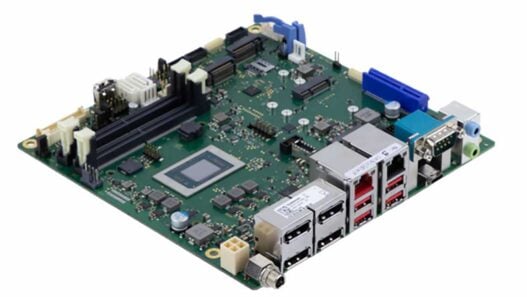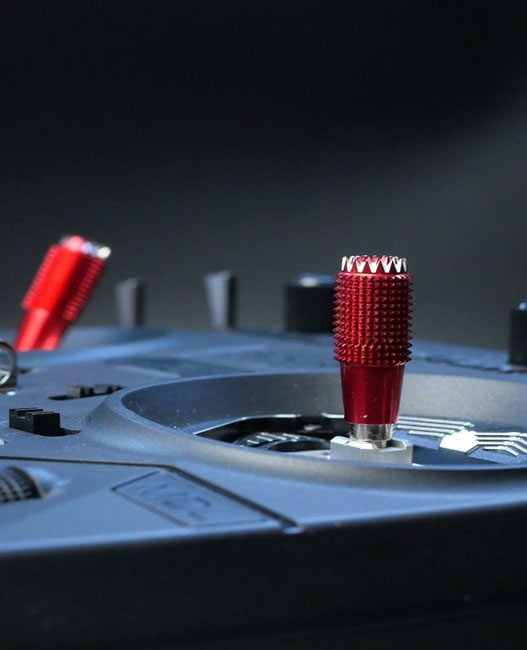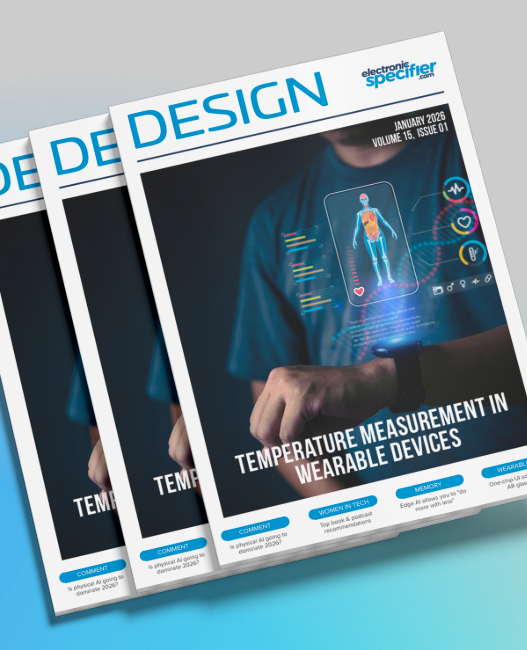Question… how do you run a $3bn business in the middle of nowhere? That’s a quandary faced by the management team at Digi-Key Electronics on a daily basis. The electronics distributor has been based in the Minnesota town of Thief River Falls in Pennington County (population 8,836), situated a mere 80 miles from the Canadian border, ever since its founder Ron Stordahl established the company in 1972.
Yet, the company stocks over 1.8 million products from over 800 manufacturers; ships to 170 countries worldwide; provides access to more than eight million products from their online catalogue; and over the course of just one hour, will ship over 800 packages.
In addition, Digi-Key are constructing a new product distribution centre (PDC) which is scheduled to open in 2021. The 2.2 million square foot building is large enough to fit the Empire State Building and will include 25 miles of conveyor.
So, how do they achieve this from a base that’s about as far removed from the tech hub of Silicon Valley as you can get? There was only one way to find out, so Electronic Specifier donned the thermals and hopped over the pond to meet with the company and its President and COO Dave Doherty to find out more.
From Maryland to Minnesota
Far from operating a multi-million-dollar business from Thief River Falls, some have previously questioned why anyone would want to live there in the first place. Doherty jokingly shared an article written in 2015 by a Washington Post reporter who, based on data from the United States Department of Agriculture (USDA), ranked Red Lake Falls, a nearby town to Digi-Key headquarters, as the worst city to live in the US!
Understandably irked by the story, and after a social media frenzy, residents of the county invited the reporter, Chris Ingraham, for a visit to show him how wrong he was. The consequence of which was that he traded his hectic, high pressure, commuter lifestyle in Baltimore, upped sticks and moved his family to Red Lake Falls. It’s obviously a location that gets under the skin of all who visit as, not content with that, Ingraham has gone on to publish a book on the area titled: ‘If You Lived Here, You’d Be Home By Now.’
Location, location
As for Digi-Key, in the company’s 40 year history the vast majority of product inventory has always been held in Thief River, and for Doherty, the question of whether the company are looking to hold any regional inventory elsewhere is one that crops up on a regular basis. The answer is that the company has very low return levels, which makes it far easier to aggregate global demand and store the inventory in one place.
Doherty commented: “If we started tomorrow with a clean sheet of paper then perhaps, through logistics and determining where in the supply chain most manufacturers are, then we could argue that we should be located near a big carrier in Memphis or Louisville – or even in China where a lot of product originates.
“However, the fact is that we are here, we’ve adapted, we’ve learned to thrive and, far from it being a disadvantage that we’re headquartered in Thief River Falls, we have made it a strength.”
It’s not as if a potential move has never been on the table however, and one of the biggest decisions the company had to make around the new PDC was whether to move to a location with a bigger labour pool to power the business model forward.
With the company DNA embedded in the mid-west Doherty knew that any potential move would be in the same area, but just not in Thief River Falls, due to size. However, as the shortlist of new sites grew shorter, so grew the realisation that it was key to the company’s business model to stay put. And in fact, Doherty likened a move to a heart transplant.
“While, sadly, some people have to have that sort of surgery, no one does it voluntarily,” he added. “Why would we chose to move the heart of Digi-Key out of Thief River Falls? So, with our partners in marketing, recruiting and HR, we’ve accepted the challenge of our new PDC being here in Thief River and we believe that we can continue to grow here along with the community.”
It’s certainly true that Digi-Key is not in Thief River exclusively, and has engineering resources outside of the US as, for some sections of the business, it helps to be closer to the customer and to understand the local market, even in e-commerce.
Essentially though, Digi-Key has a commitment to a one-stop-shop, under one roof, and because the company does not ship manufacturing quantities, it’s a model that works. However, that is not to say that the company is inflexible to change, as Doherty added: “By the time that we consume the 2.2 million square foot of space in the new PDC, it may be time to look at it again. One area where we’re investing is in growing leaders – and one of the accelerated leadership groups that we’ve set up will look at some of the triggers that will let us know that it’s time to expand. Because we want to plan for the next expansion now.
“There are products like dev boards that have single minimum order quantity (MOQs) with a lot of localised sources for those boards, so there are some products that do lend themselves to local stocking. So, we don’t want to be a prisoner to the business model, but it’s one that is working pretty well right now for the bulk of our business, so we are going to scale it under the model that has traditionally worked for us and continue to be curious and innovate in other ways.”
People
It was self-evident how crucial and integral the people of Digi-Key are to the company business model and culture, with Doherty referring to them as “the secret sauce” of the levels of service the company are able to provide.
And it’s here that Thief River Falls as a location reveals something of a secret weapon with regards to Digi-Key’s workforce, as living in an environment such as that makes you inherently adaptable and resourceful, as Doherty explained: “The people here are unbelievably innovative. Where I grew up in Boston, if I couldn’t find a product in a store, I just assumed it didn’t exist and I’d have to make do with something else. Here, the people are just adept at building things to meet their needs.”
Indeed, a lot of Digi-Key’s warehouse equipment was designed in-house, rather than originating from a third party. So much of what is being developed is being done internally. “We have engineers who have been taken off the phones helping customers and have just been deployed internally to improve our own systems, so we don’t rely purely on external partners. There’s so much of the equipment here that we’ve tailored and customised – there’s an ingenuity about being located where we are – necessity is the mother of invention.”
The company’s new PDC will, naturally due to its size and the level of technology being implemented, feature a high level of automation. Subsequently, the question was raised of how this has been received amongst Digi-Key’s workforce and whether there were any internal concerns.
“Our goal with automation is not to downsize per se in terms of personnel, but to slow down the hiring requirements as we continue to grow,” said Doherty. “Automation will enable us to grow revenue and shipments at a higher rate to head count than we have in the past, but we’ll certainly still be growing our workforce.
“Sure, we’ve had staff concerns, and if you read stories about automation, some are just code words for layoffs and downsizing. What we do is get our staff to look around and observe the amount of hiring we’re doing. Jobs will change for sure. But we want to automate the tasks that staff get most frustrated with – no one likes to do repetitive, mundane work, day in day out, and the truth is we don’t want them doing that either.”
Unsurprisingly, being by far the largest employer in the town, Digi-Key has established strong links with its business, educational and academic partners, including the Digi-Key university and scholarship programme where students can go direct from high school and into a two-year scholarship, at the end of which they join the company; or students can work part-time at Digi-Key straight from high school and receive support from the company while they go to school and attain the required qualifications.
“We have a great rapport with the university professors, and we tailor the content around electronic components and some of the techniques that we need. In Minneapolis there is a number of other similar technical schools so there is a really high level of innovation in people and academic prowess that we can tap into – we really do invest significantly in training,” Doherty added.
Some have, perhaps cynically, suggested that Digi-Key’s low staff turnover is purely down to the fact there is very little competition for staff in the area. While Doherty acknowledges that fact, he also stressed that the company pay some of the highest wages in the area for entry level staff and have a generous healthcare benefit package.
“We want people to stay at Digi-Key,” he continued. “And crucially, we want them to want to do that as well. We take care of our employees, they take care of our customers, the customers have a great experience and want to come back to Digi-Key – and so the cycle continues.”
Under your skin
Doherty further acknowledged that individuals must have a certain something in their DNA to live in Northwest Minnesota. It’s certainly not unusual for students to graduate high school and arrive at the point of view that the last place in the world they are going to want to live and work is a dusty rural community near the Canadian border.
However, as mentioned previously, Thief River appears to be a place that can get under your skin, and Digi-Key are seeing a definite trend as a company where, after five or six years, the stress of working in places such as San Jose or Doherty’s hometown of Boston, impacts negatively on quality of life.
Doherty added: “When people start thinking about having a family, they look more closely at the cost of living in urban areas, levels of stress etc. Suddenly, they start to realise that where they grew up wasn’t all that bad after all and the grass isn’t always greener. And so, people get drawn back to the area.
“The geographic location of Digi-Key presents its own challenges of course, but we have cross-functional training in place to accommodate that. It’s not unusual for someone to commute an hour to work. In a big city, however, that could equate to just ten miles with traffic. In a rural area like this it could mean 60 miles.”
The weather in Minnesota is obviously a factor but Digi-Key has alerts in place through text and voicemail that notifies the company of weather conditions. “We never shutdown but sometimes we know we’re going to need help because we know we’re going to get call-ins from the more remote people, so the folks in the closer geographic areas can have the hours if they want them,” Doherty added.
“It should be noted that we haven’t had a single hour of mandatory overtime in the last five years, even during peak periods which constituted pretty much the entirety of 2018. It’s important to respect people’s time. Folks up here will take the shirt off their back to help, but we respect the fact that they make the decision to do so and we don’t tell them they have to.
“If ever we write a book about Digi-Key that will be a key chapter. Throw out all the guidebooks around setting up quotas and increasing productivity by doing certain things. Much more simply, let people know the consequences of what’s at stake and ask for their help. There’s a quality in people that means they inherently want to help one another, and we tap into that, we respect it and we try to give back.”













